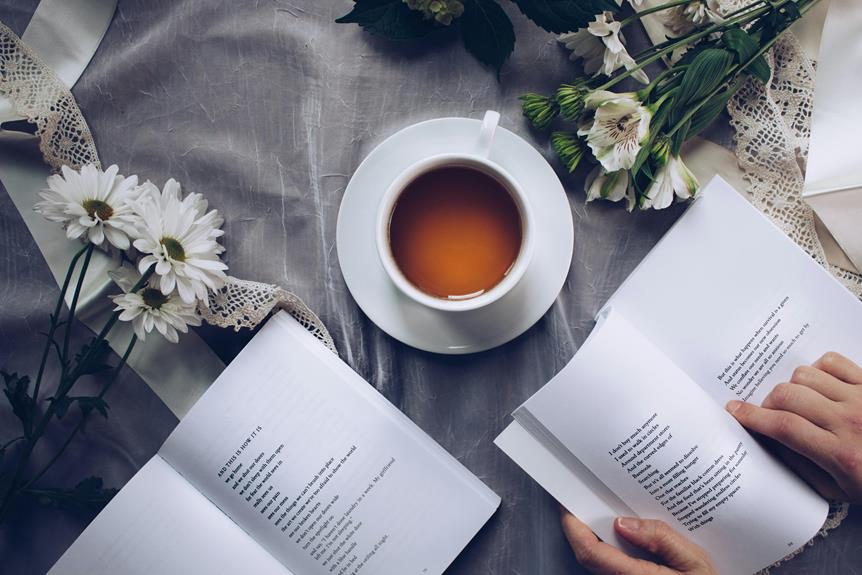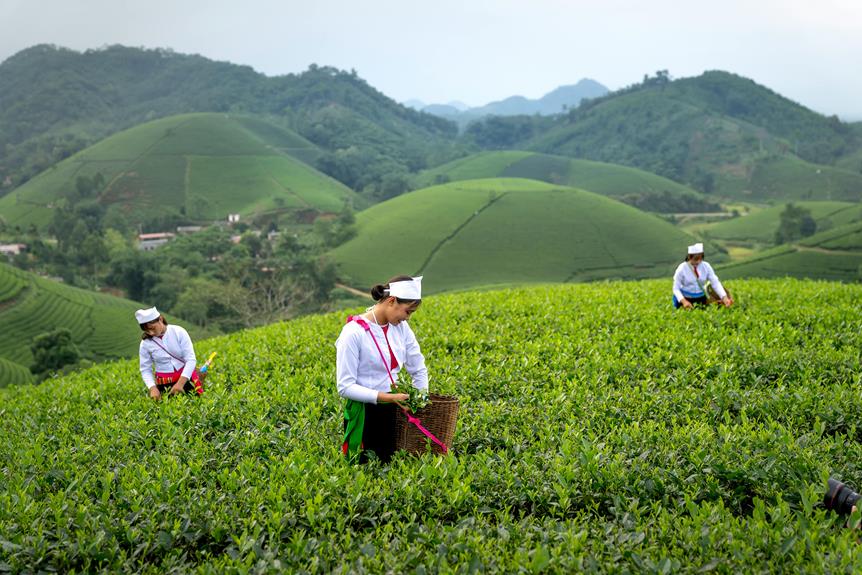

Hojicha
Understanding Hojicha Tea Caffeine Content
When you pour yourself a cup of hojicha, you can expect to find about 7.7 mg of caffeine per 250 ml cup. This amount is significantly lower than what you’d find in coffee or matcha, making hojicha a gentle choice for those who are sensitive to caffeine.
The roasting process of hojicha, which occurs at temperatures above 178°C (350°F), plays a crucial role in reducing its caffeine content. During this process, caffeine begins to dissipate, leading to a milder flavor profile that many
Comparing Hojicha with Other Teas
To put things in perspective, let’s compare hojicha
- Coffee: A standard cup of coffee contains about 80-100 mg of caffeine.
- Matcha: A typical serving of matcha can range from 30 to 70 mg of caffeine.
- Green
Tea : Most green teas have about 20-30 mg of caffeine per cup.
As you can see, hojicha
Natural Caffeine in Hojicha
If you’re looking for a natural caffeine option, hojicha is an excellent candidate. With its unique flavor derived from the roasting process, this
The roasting temperatures, which can reach up to 200°C (392°F), cause not only the flavor to change but also the caffeine content. This high-temperature roasting leads to a sublimation of caffeine, resulting in a warm, comforting beverage with a lower caffeine profile. If you’re sensitive to caffeine but still want to enjoy a
Why Choose Hojicha?
Many people are drawn to hojicha because it offers a unique taste experience that differs from traditional green teas. The rich, roasted flavors provide a comforting aroma that can soothe the senses, making it a delightful choice for any time of day. Plus, with its low caffeine content, you don’t have to worry about sleepless nights!
Factors Affecting Hojicha Tea Caffeine Levels
Understanding how much caffeine is in hojicha involves considering several factors that influence its caffeine levels. Here are the key elements:
- Type of
Tea Leaves: The variety oftea leaves used in hojicha can significantly affect its caffeine content. Younger leaves tend to contain more caffeine compared to older, more mature leaves. Hojicha is often made using bancha leaves, which are harvested later in the season and contain less caffeine. - Roasting Process: The roasting technique plays a significant role in determining hojicha
tea caffeine levels. Higher roasting temperatures lead to greater caffeine loss. Hojicha is typically roasted at high temperatures, which reduces its caffeine content. - Twig Content: Some hojicha blends include twigs and stems (like kukicha), which naturally contain minimal caffeine. This means that hojicha made with a higher twig content will have even less caffeine compared to blends made solely with leaves.
- Brewing Time and Temperature: The way you brew your hojicha can also impact the caffeine extracted. Longer steeping times or higher temperatures might yield slightly more caffeine, although hojicha is generally brewed at lower temperatures to preserve its flavor.
Caffeine Comparison: Hojicha vs. Coffee & Green Tea
Now that we’ve established the level of hojicha
- Hojicha: Approximately 7-10 mg of caffeine per cup.
- Coffee: Roughly 80-100 mg of caffeine per cup.
- Green
Tea (like sencha): Between 20-30 mg of caffeine per cup.
Clearly, hojicha
The Benefits of Low Caffeine
One of the benefits of having a lower caffeine option like hojicha is that it can help you enjoy the calming ritual of
Managing Hojicha Tea Caffeine Levels
If you’re trying to manage your caffeine intake, hojicha can be a valuable addition to your routine. With its naturally low caffeine content, it offers a pleasant way to enjoy
To best manage your caffeine consumption with hojicha:
- Opt for Mature Leaves: Choosing hojicha made from mature bancha leaves or kukicha will further reduce the caffeine levels in your cup.
- Enjoy the Roasting Process: Because the roasting process plays such a significant role in lowering caffeine, make sure to look for high-quality hojicha that has been roasted adequately.
- Experiment with Blends: Some hojicha blends incorporate a higher percentage of twigs, which can help keep the caffeine low. This can also enhance the flavor profile of your
tea .
The Unique Experience of Drinking Hojicha
Drinking hojicha is more than just about caffeine—it’s an experience. The deep, nutty flavors and warm, roasted aroma create a unique
Hojicha’s Flavor Profile
Hojicha has a distinct flavor that sets it apart from other green teas. The roasting process gives it a toasty, caramel-like flavor that can be incredibly satisfying. Whether enjoyed hot or cold, hojicha can be a versatile base for various drinks and culinary creations.



Konnichiwa! (Hello!) I'm Pat Tokuyama, a Japanese tofu cookbook author, who travels for music, food, and adventure. If you like Japanese tea, checkout some of the newestorganic japanese tea, matcha bowls and noren and more!
** Curious about the Plant Based Japanese Cooking Club? ** Learn more here!
Perfect for Any Occasion
Whether you’re winding down in the evening or looking for a cozy afternoon beverage, hojicha fits the bill. Its low caffeine levels make it suitable for any time of day, offering a delightful alternative to coffee or traditional
Conclusion
So, do you now know the hojicha
Embrace the soothing qualities and unique flavors of hojicha, and consider making it a regular part of your





Konnichiwa! (Hello!) I'm Pat Tokuyama, a Japanese tofu cookbook author, who travels for music, food, and adventure. If you like Japanese tea, checkout some of the newestorganic japanese tea, matcha bowls and noren and more!
** Curious about the Plant Based Japanese Cooking Club? ** Learn more here!